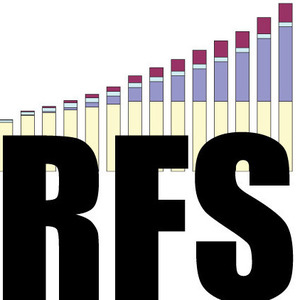EPA extends comment period on REGS, point of obligation proposals

January 5, 2017
BY Erin Krueger
The U.S. EPA has extended the public comment periods for its Renewable Enhancement and Growth Support proposed rule and its proposed denial to change the point of obligation under the renewable fuel standard (RFS).
The original 60-day comment period on the proposed REGS rulemaking was set to close Jan. 17. According to the EPA, it received a joint request for an extension on Dec. 9. That request was filed by the American Soybean Association, Corn Refiners Association, Global Renewable Strategies and Consulting LLC, Growth Energy, Iowa Biodiesel Board, Iowa Renewable Fuels Association, National Biodiesel Board, National Renderers Association, Renewable Fuels Association, and U.S. Canola Association. Within the request, the petitioners asked for an extension in order to have more time to evaluate the implications of the REGs rule. The EPA said that in light of the large number of revisions proposed in the REGS rulemaking, it will extend the comment period for 30 days. The new deadline to file written comments is Feb. 16.
The EPA has also issued a 30-day extension period of the comment period associated with its proposed denial of petitions seeking to change the RFS point of obligation. According to the EPA, it received a request from the Small Retailers Coalition on Dec. 13 asking for an extension to allow its members to provide thorough comments and data. In light of the importance of the point of obligation issue, the agency said it will extend the deadline to file written comments. The comment period, which was originally scheduled to close Jan. 23, will not be extended through Feb. 22.
Advertisement
Additional information is available on the EPA website.
Advertisement
Related Stories
President Trump on July 4 signed the “One Big Beautiful Bill Act.” The legislation extends and updates the 45Z credit and revives a tax credit benefiting small biodiesel producers but repeals several other bioenergy-related tax incentives.
International Sustainability & Carbon Certification has announced that Environment and Climate Change Canada has approved ISCC as a certification scheme in line with its sustainability criteria under its Clean Fuel Regulations.
Legislation introduced in the California Senate on June 23 aims to cap the price of Low Carbon Fuel Standard credits as part of a larger effort to overhaul the state’s fuel regulations and mitigate rising gas prices.
The government of Brazil on June 25 announced it will increase the mandatory blend of ethanol in gasoline from 27% to 30% and the mandatory blend of biodiesel in diesel from 14% to 15%, effective Aug. 1.
The U.S. Court of Appeals for the D.C. Circuit on June 20 rejected several claims challenging the U.S. EPA’s RFS Set rule but will require the agency to provide additional information on certain environmental findings.
Upcoming Events










